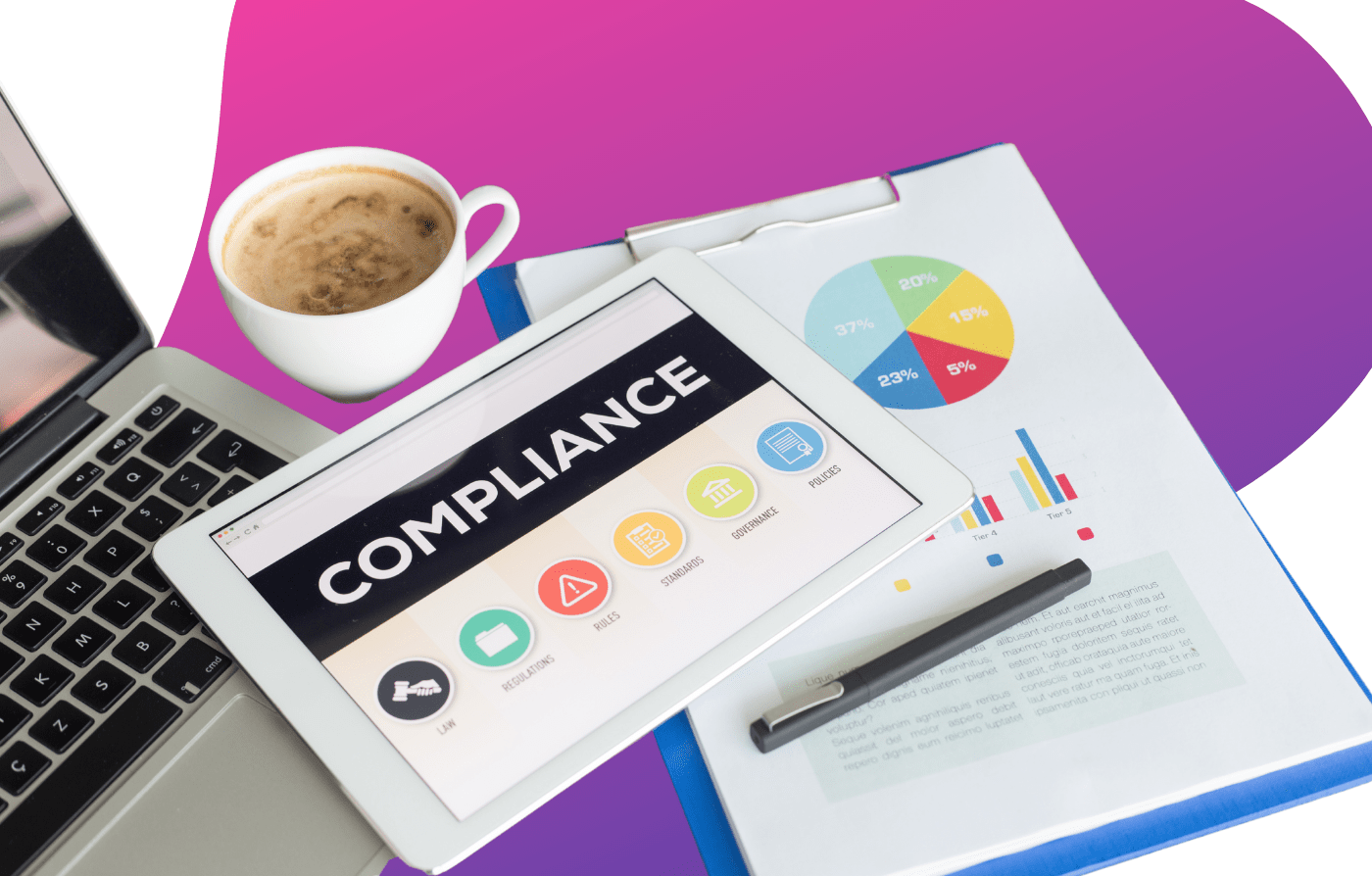Digital Compliance works across the company, in an agile workplace in this ever-changing environment.
Defining compliance is the act of complying with a command, desire, or rule. Alternatively, some give the definition of compliance as adhering to requirements, standards, regulations, privacy, etc. It is the ability to resist risks that ensure the company’s competitiveness in the digital environment and allows it to be sustainable, reduce costs for court costs and increase consumer confidence.
Why is digital compliance important?
The digitalisation of compliance activities makes working off-site possible, for compliance officers, managers and employees in the organisation. Digitalisation also makes compliance activities more effective and efficient.
Reasons why compliance is important for your business:
1. It is a Companys’s duty to employees and stakeholders to comply with the law by adhering to and regulating the conduct of its employees.
2. Compliance allows for inspired leadership and innovation as it helps to define what a company does, how it does and why it does it. It is important to note that codes of conduct stem from values and aligned values drive company growth.
3. Compliance reduces risk in your business by facilitating the right actions and clear understanding. An organisation’s performance is often challenged by internal threats (more so than external threats) and compliance exposes unacceptable conduct.
4. In the absence of compliance your company cannot build and maintain trust with others which leaves leadership at risk, inviting reputational damage.
5. Compliance is the reference point against which ethics, values, policies and codes of conduct are measured, making the right decisions easy.
GDPR
Personal Data – The General Data Protection Regulation 2016/679 is a regulation in European Union (EU) law on data protection and privacy in the European Union and the European Economic Area. It also addresses the transfer of personal data outside the EU and EEA areas. The term is defined in Art. 4(1). Personal data is any information that is related to an identified or identifiable natural person. For example, the telephone, credit card or personnel number of a person, account data, number plate, appearance, customer number, or address are all personal data.
POPI
WHAT IS POPI?
The Personal of Personal Information Act 4 of 2013 (POPIA) is the comprehensive data protection legislation enacted in South Africa.
WHO MUST BE COMPLIANT
The Act applies to any person or organisation that keeps any type of record relating to the personal information of anyone.
WHY SHOULD BUSINESSES BE POPI COMPLIANT
It enables businesses to regulate how information is organised, stored, secured, and discarded.
WHEN SHOULD BUSINESSES BE COMPLIANT
Each business has 12 months (from 1 July 2021) to fully comply with this Act.
REPERCUSSION OF NON-COMPLIANCE
A fine of R10 million and/or imprisonment
We provide on-site and off-site consulting services catering to your business needs. we will conduct a GAP analysis to help identify key pain points in your organisation and help you mitigate them.
We will provide online training through our online training portal.
Our consulting services include:
– POPI
– Risk Management
– Cyber security






